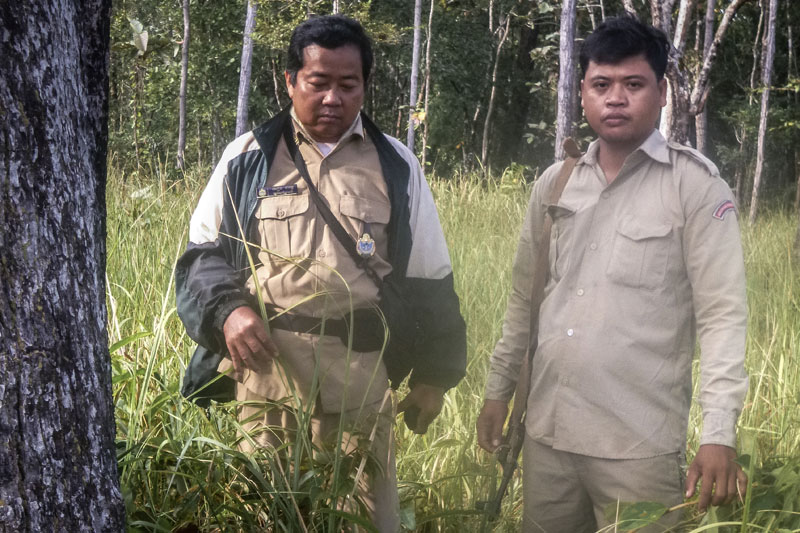The government said this week it wanted to increase by at least 30 percent the number of forest rangers working next year in Cambodia’s wildlife sanctuaries, national parks and other protected areas to guard against encroaching logging, poaching and farming.
In a sprawling speech about the environment on Monday, Prime Minister Hun Sen said rangers provided a first line of defense in the country’s attempts to protect the environment, including its wildlife.

“On behalf of government, I announce today a plan to recruit 300 rangers for 2017,” Mr. Hun Sen said on Monday. “We have increased military and police for internal security, but we also have to increase the force to protect our forestry natural resources.”
The Environmental Ministry had already put in a request to boost the number of rangers by 240, from 960 to 1,200, by 2017. Mr. Hun Sen’s plan now takes precedence, said Sao Sopheap, spokesman for the Environment Ministry.
“We want to be very fast, but we have to go through internal processes,” Mr. Sopheap said, explaining that the ministry would now need to rescind the original request and prepare a new request for 300 rangers.
The Ministry of Public Functions, which oversees civil service administration, was already evaluating the fiscal ramifications of the Environment Ministry’s original request, said Sok Sam Ath, director of the ministry’s department of management framework.
Each forest ranger earns a monthly salary of 400,000 riel, or about $100. Adding another 300 rangers at the same salary would cost at least $360,000 annually.
“We absolutely need more rangers, but we have to understand the budget constraints,” Mr. Sopheap said.
The Environment Ministry is currently responsible for about 6 million hectares of protected land, an increase of 2.6 million hectares just this year due to land transfers from the Agriculture Ministry, including economic land concessions in protected areas.
The optimal standard of protection is six rangers patrolling every 100 square km of protected area, according to the International Union for Conservation of Nature and Natural Resources. Using the NGO’s benchmark, Cambodia would need 3,540 rangers countrywide, about three times its current target.
A WWF report this year outlining a plan to reintroduce tigers to Cambodia’s Eastern Plains region recommended at least three rangers per 100 square km of protected area. Under this lesser standard, the country would need about 1,770 rangers in total.
Monitoring is integral to ensuring designated forests are actually protected, according to research by the U.N. Food and Agriculture Organization. Cambodia experienced the fourth-highest global rate of deforestation between the years of 1990 and 2015, behind Nigeria, Sierra Leone and Vietnam, the organization said in its 2015 Global Forest Resources Assessment.
Rangers are also critical in the search for poachers, animal snares and traps, as well as illegal loggers, said Thomas Gray, director of science at Wildlife Alliance, a Cambodia-based NGO.
Cambodia’s changing demographics heighten the need for more people to protect the country’s natural resources, said Dany Chheang, deputy director of the Agriculture Ministry’s wildlife protection office.
“In 1965, we had about 70 percent forest coverage across the country. The human population was 6 million. In 2015, we have forest coverage of 50 percent. Now we have population of 15 million,“ Mr. Chheang said.
“Cambodian people rely on natural resources. When the population increases, pressure is put on the forest.”




